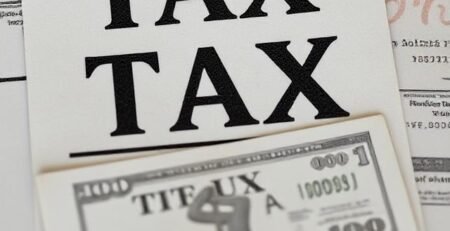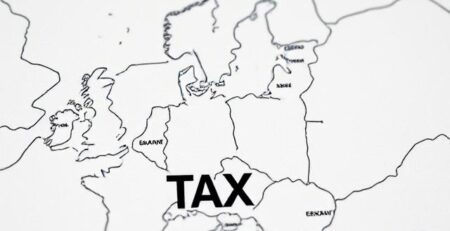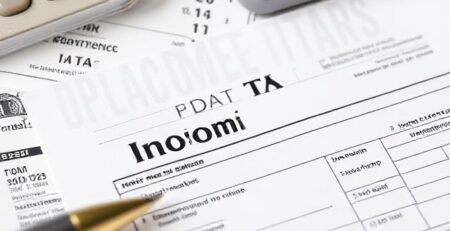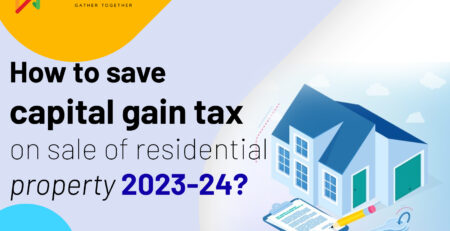Is France a Highly Taxed Country? A Comprehensive Analysis of French Taxation in 2025
France has long been perceived as a nation with high taxation, but is this reputation justified in 2025? Understanding France’s complex tax system is crucial for individuals considering relocation, businesses planning expansion, and anyone curious about how one of Europe’s largest economies funds its extensive social programs and public services.
Understanding France’s Tax Landscape
France operates a sophisticated taxation system that encompasses multiple types of taxes affecting both individuals and businesses. The country’s approach to taxation reflects its commitment to maintaining comprehensive social services, universal healthcare, and robust infrastructure, all of which require substantial public funding.
The French tax system is built on the principle of progressivity, meaning higher earners pay proportionally more in taxes. This approach, combined with various social charges and contributions, creates what many consider one of the world’s most comprehensive taxation frameworks.
Personal Income Tax on Salary: The Core of French Taxation
Current Tax Brackets and Rates for 2025
The 2025 schedule (applicable to 2024 income) is set by the 2025 budget law. Thresholds are raised by 1.8% in 2025. The French income tax system operates on a progressive scale with rates ranging from 0% to 45%.
For the 2025 tax year, the income tax brackets have been adjusted to account for inflation, providing some relief to taxpayers whose salaries haven’t increased proportionally. If your income hasn’t increased by at least 1.8%, your income tax will automatically decrease.
The progressive nature of French income tax on salary means that different portions of your income are taxed at different rates. This system ensures that the tax burden increases gradually as income rises, rather than applying a flat rate across all income levels.
Social Charges: The Hidden Tax Burden
Beyond income tax, French residents face significant social charges (charges sociales) that substantially increase the overall tax burden on salary. These charges fund France’s comprehensive social security system, including:
- Healthcare coverage (Assurance Maladie)
- Unemployment benefits (Assurance Chômage)
- Retirement pensions (Retraite)
- Family allowances (Allocations Familiales)
- Housing assistance programs
For employees, social charges typically represent approximately 22-25% of gross salary, while employers contribute an additional 40-45%. This dual contribution system means that the total social cost of employment in France is significantly higher than the gross salary alone would suggest.
Wealth Tax and High-Income Surcharges
France has implemented additional measures targeting high earners. It contains measures concerning the tax scale for individual taxpayers, the temporary minimum effective tax of 20 percent on “the highest incomes,” demonstrating the country’s commitment to ensuring wealthy individuals contribute proportionally to public finances.
The Impôt sur la Fortune Immobilière (IFI), which replaced the previous wealth tax, applies to real estate assets exceeding €1.3 million. This tax specifically targets property wealth, reflecting France’s approach to addressing wealth inequality through taxation.
Corporate Tax: Business Taxation in France
Standard Corporate Tax Rates
The general company tax rate is 25%. For qualifying small-medium companies (turnover less than 7.63 million), there is a reduced tax of 15% on the first 42,500 Euros of profit, and 25% on the profit above 42,500 Euros.
This tiered approach to corporate taxation demonstrates France’s effort to support small and medium enterprises while ensuring larger corporations contribute adequately to public finances. The reduced rate for smaller businesses helps maintain competitiveness and encourages entrepreneurship.
Additional Corporate Tax Measures
France has implemented several additional corporate tax measures to address international tax planning and ensure fair contribution from multinational corporations. In addition, a 15% domestic minimum tax (QDMTT) applies to income years starting on or after 31 December 2023 for France operations of multinationals and will ensure that France retains taxing rights over undertaxed French profits.
These measures align with international efforts to prevent tax base erosion and profit shifting, ensuring that companies operating in France contribute fairly to the tax base regardless of their international structure.
Local Business Taxes
Beyond national corporate tax, French businesses face various local taxes, including:
- Cotisation Foncière des Entreprises (CFE) – based on property value
- Cotisation sur la Valeur Ajoutée des Entreprises (CVAE) – based on added value
- Taxe d’Apprentissage – funding vocational training programs
These additional taxes can significantly impact the overall tax burden for businesses, particularly those with substantial physical presence or high value-added operations.
Taxation for Foreigners: Navigating French Tax Obligations
Tax Residency Rules
Individuals, whether French or foreign nationals, who have their tax domicile in France are generally subject to personal income tax (PIT) on worldwide income unless excluded by a tax treaty. Understanding tax residency is crucial for foreigners, as it determines the scope of French tax obligations.
Tax residency in France is generally established if you:
- Spend more than 183 days per year in France
- Have your principal residence in France
- Conduct your main professional activity in France
- Have your center of economic interests in France
Special Regimes for Expatriates
France offers specific tax regimes designed to attract foreign talent and investment. additional compensation directly linked to the exercise of a professional activity in France (expatriate bonus); the share of compensation relating to the foreign activity carried out in the interests of the employer; 50 % of income from investments from foreign sources can benefit from favorable treatment under expatriate tax regimes.
These regimes can significantly reduce the tax burden for qualified foreigners, making France more attractive for international talent while ensuring the country benefits from foreign expertise and investment.
Non-Resident Taxation
Foreigners who don’t qualify as French tax residents face different obligations. Non-residents are typically only taxed on French-source income, which may include:
- Employment income earned in France
- Rental income from French property
- Business profits from French operations
- Capital gains from French assets
Social Security and Healthcare Contributions
Comprehensive Social Protection System
France’s social security system is among the world’s most comprehensive, providing extensive coverage for healthcare, unemployment, disability, and retirement. This comprehensive protection comes at a cost, with social charges representing a significant portion of the overall tax burden.
The French healthcare system, consistently ranked among the world’s best, is primarily funded through these social contributions. In addition to income tax, expatriates must also be aware of social charges, which can significantly add to the tax burden. These charges cover contributions to France’s social security system, including health care, pensions, and other social benefits.
Impact on Overall Tax Burden
When considering whether France is highly taxed, it’s essential to account for the value received through social programs. French residents benefit from:
- Universal healthcare with minimal out-of-pocket costs
- Generous unemployment benefits
- Comprehensive pension systems
- Family support programs
- Subsidized education, including higher education
International Tax Comparisons
France vs. Other Developed Nations
Comparing France’s tax burden to other developed nations requires careful analysis of both tax rates and the services provided. While France’s marginal tax rates may appear high, the comprehensive social benefits often offset much of this burden for residents.
The Personal Income Tax Rate in France stands at 45 percent. However, this top rate only applies to the highest income brackets, and most taxpayers face significantly lower effective rates due to the progressive system and various deductions available.
Total Tax Burden Considerations
When evaluating France’s position as a highly taxed country, consider that many countries with lower headline tax rates require individuals to purchase private insurance for healthcare, education, and other services that France provides through its tax-funded systems.
Tax Optimization Strategies for Residents and Foreigners
Legal Tax Planning Opportunities
Both French residents and foreigners can employ various legal strategies to optimize their tax burden:
For Salary Earners:
- Maximizing deductible expenses
- Utilizing tax-advantaged savings accounts (PEA, assurance vie)
- Taking advantage of family tax quotients
- Optimizing the timing of income recognition
For Businesses:
- Strategic use of the reduced corporate tax rate for SMEs
- Proper planning for international operations
- Utilizing available tax credits and incentives
- Efficient structuring of business operations
For Foreigners:
- Evaluating eligibility for expatriate tax regimes
- Proper tax treaty planning
- Understanding French source income rules
- Coordinating with home country tax obligations
Professional Tax Advice
Given the complexity of French taxation, professional advice is often essential. Tax advisors can help navigate the intricate rules, ensure compliance, and identify legitimate optimization opportunities while avoiding potential pitfalls.
Value Proposition: What French Taxes Fund
Public Services and Infrastructure
French taxes fund an extensive array of public services that directly benefit residents and businesses:
Healthcare System:
- Universal coverage with minimal patient costs
- Comprehensive medical services
- Prescription drug subsidies
- Mental health services
Education:
- Free public education from primary through university
- Subsidized higher education for EU residents
- Extensive vocational training programs
- Research and development funding
Infrastructure:
- High-speed rail networks (TGV)
- Modern highway systems
- Public transportation in major cities
- Digital infrastructure development
Social Support:
- Unemployment benefits
- Family allowances
- Housing assistance
- Disability support
- Elder care services
Economic Benefits
The comprehensive tax-funded system creates several economic advantages:
- Reduced individual financial risk through social safety nets
- Lower healthcare costs for businesses
- Skilled workforce through publicly funded education
- Stable consumer spending due to social protections
Recent Tax Reforms and Future Outlook
2025 Budget Law Changes
The 2025 Budget Law introduced several important changes affecting both individuals and businesses. These reforms aim to balance the need for public revenue with economic competitiveness and fairness concerns.
Key changes include adjustments to tax brackets to account for inflation, modifications to corporate tax rules, and updates to international tax compliance requirements.
Ongoing Reform Discussions
French policymakers continue to debate various tax reforms, including:
- Further adjustments to corporate tax rates
- Modifications to wealth taxation
- Changes to expatriate tax regimes
- Updates to social charge structures
These discussions reflect the ongoing challenge of maintaining adequate public funding while remaining competitive in the global economy.
Practical Implications for Different Groups
For Individual Taxpayers
High earners in France face substantial tax obligations, but middle-income earners often find the effective tax burden manageable when considering the comprehensive social benefits received. The progressive system ensures that those with lower incomes face proportionally lower tax burdens.
For Businesses
Companies operating in France must carefully consider the total cost of taxation, including corporate taxes, social charges, and local taxes. However, many businesses find that the skilled workforce, excellent infrastructure, and stable regulatory environment justify the tax costs.
For Foreign Investors
Foreign investors evaluating France must weigh the tax implications against the advantages of operating in one of the world’s largest economies, with access to the broader European market and comprehensive legal protections.
Conclusion: Is France Really Highly Taxed?
France undeniably has high tax rates by international standards, particularly when considering the combination of income tax, social charges, and various other levies. However, the question of whether France is “highly taxed” depends largely on perspective and what one values in return for tax payments.
For individuals and businesses that prioritize comprehensive social protections, excellent public services, and high-quality infrastructure, France’s tax burden may represent good value. The extensive healthcare system alone often justifies much of the social charge burden when compared to countries where individuals must purchase private insurance.
The reality is nuanced: France is highly taxed in absolute terms, but the comprehensive benefits system and public services provide substantial value that partially offsets the tax burden. For foreigners considering relocation or business expansion, the key is understanding the total cost-benefit equation rather than focusing solely on headline tax rates.
Success in the French tax environment requires proper planning, understanding of available optimization strategies, and often professional guidance to navigate the complex regulatory landscape. While the tax burden is substantial, France continues to attract individuals and businesses who value the stability, services, and opportunities that this taxation helps fund.
Ultimately, whether France’s taxation level is appropriate depends on individual circumstances, values, and priorities. What’s certain is that understanding the system thoroughly is essential for anyone operating within the French tax environment, whether as a resident, business owner, or foreign investor.












